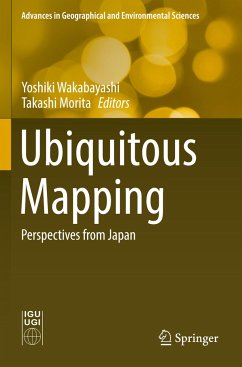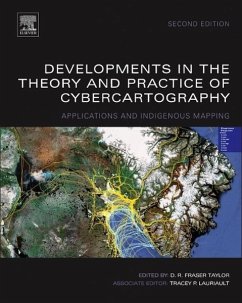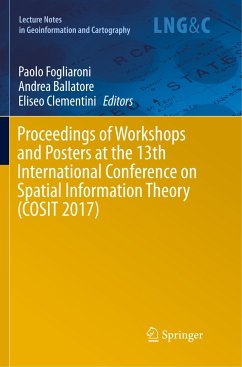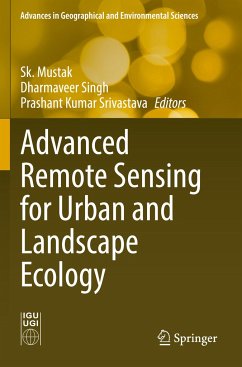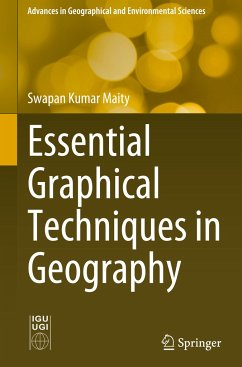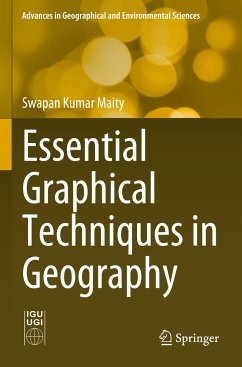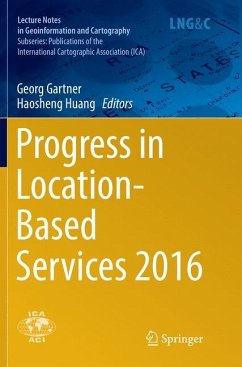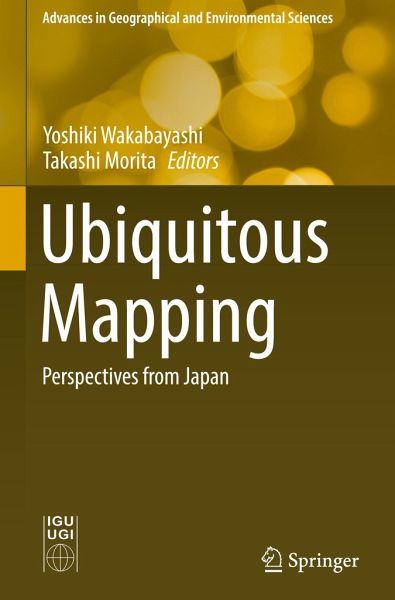
Ubiquitous Mapping
Perspectives from Japan
Herausgegeben: Wakabayashi, Yoshiki; Morita, Takashi

PAYBACK Punkte
57 °P sammeln!
Since the last decades of the twentieth century, the circumstances surrounding map use and map making have drastically changed owing to advances in information and communication technologies (ICTs). In particular, the spread of web maps and mobile devices have altered the way people interact with maps. This book features the latest works on theoretical and practical issues of these changes by terming them "ubiquitous mapping". In particular, the book pays attention to not only the technological basis but also multidisciplinary human-social aspects. The book covers the topics of the evaluation ...
Since the last decades of the twentieth century, the circumstances surrounding map use and map making have drastically changed owing to advances in information and communication technologies (ICTs). In particular, the spread of web maps and mobile devices have altered the way people interact with maps. This book features the latest works on theoretical and practical issues of these changes by terming them "ubiquitous mapping". In particular, the book pays attention to not only the technological basis but also multidisciplinary human-social aspects. The book covers the topics of the evaluation of ICT-based technologies for context-aware mapping, the theory and application of crowd-sourced geospatial information and collaborative mapping, and both the positive and negative effects of ubiquitous mapping on human society.



